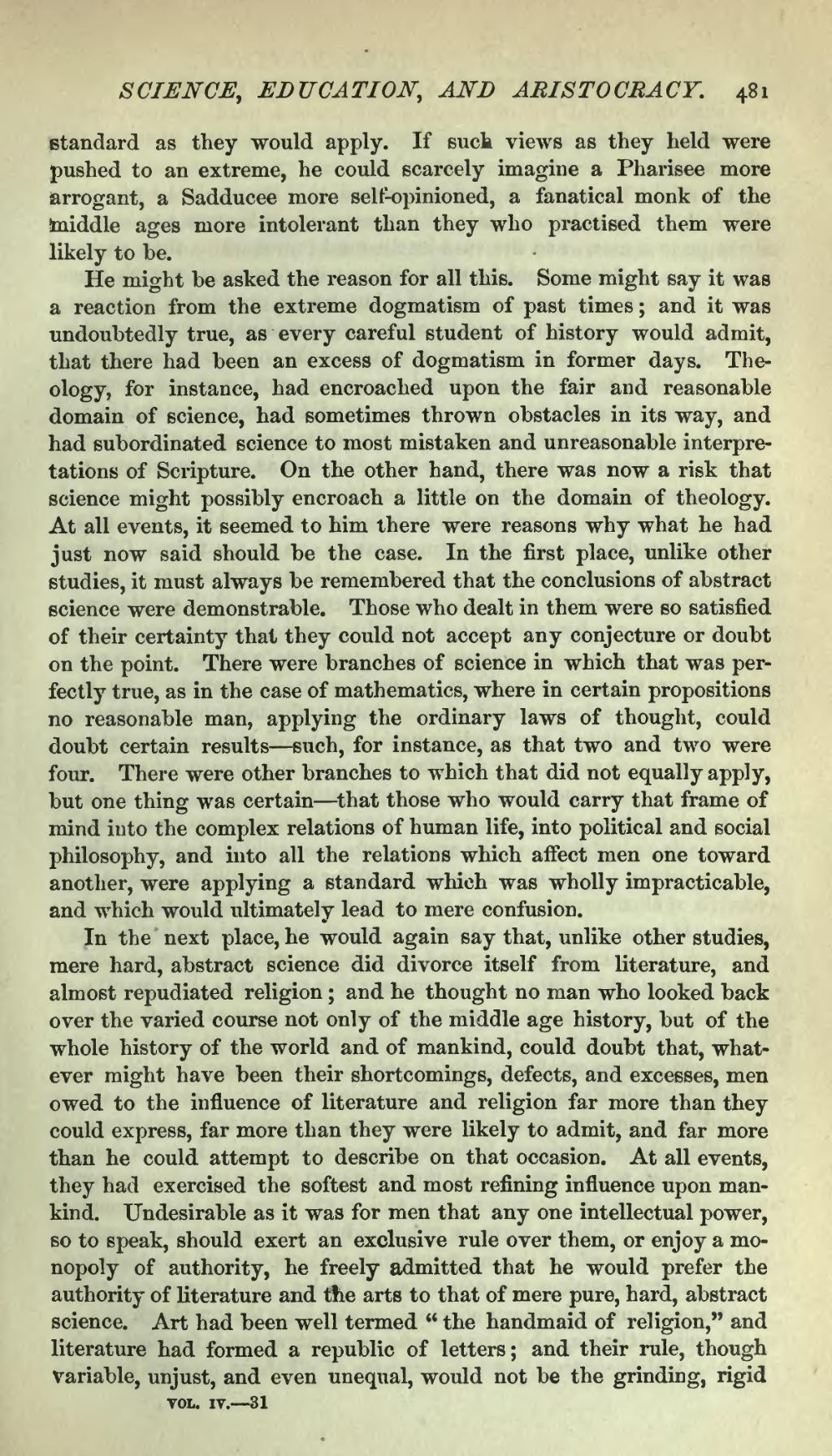standard as they would apply. If suck views as they held were pushed to an extreme, he could scarcely imagine a Pharisee more arrogant, a Sadducee more self-opinioned, a fanatical monk of the middle ages more intolerant than they who practised them were likely to be.
He might be asked the reason for all this. Some might say it was a reaction from the extreme dogmatism of past times; and it was undoubtedly true, as every careful student of history would admit, that there had been an excess of dogmatism in former days. Theology, for instance, had encroached upon the fair and reasonable domain of science, had sometimes thrown obstacles in its way, and had subordinated science to most mistaken and unreasonable interpretations of Scripture. On the other hand, there was now a risk that science might possibly encroach a little on the domain of theology. At all events, it seemed to him there were reasons why what he had just now said should be the case. In the first place, unlike other studies, it must always be remembered that the conclusions of abstract science were demonstrable. Those who dealt in them were so satisfied of their certainty that they could not accept any conjecture or doubt on the point. There were branches of science in which that was perfectly true, as in the case of mathematics, where in certain propositions no reasonable man, applying the ordinary laws of thought, could doubt certain results—such, for instance, as that two and two were four. There were other branches to which that did not equally apply, but one thing was certain—that those who would carry that frame of mind into the complex relations of human life, into political and social philosophy, and into all the relations which affect men one toward another, were applying a standard which was wholly impracticable, and which would ultimately lead to mere confusion.
In the next place, he would again say that, unlike other studies, mere hard, abstract science did divorce itself from literature, and almost repudiated religion; and he thought no man who looked back over the varied course not only of the middle age history, but of the whole history of the world and of mankind, could doubt that, whatever might have been their shortcomings, defects, and excesses, men owed to the influence of literature and religion far more than they could express, far more than they were likely to admit, and far more than he could attempt to describe on that occasion. At all events, they had exercised the softest and most refining influence upon mankind. Undesirable as it was for men that any one intellectual power, so to speak, should exert an exclusive rule over them, or enjoy a monopoly of authority, he freely admitted that he would prefer the authority of literature and the arts to that of mere pure, hard, abstract science. Art had been well termed "the handmaid of religion," and literature had formed a republic of letters; and their rule, though variable, unjust, and even unequal, would not be the grinding, rigid VOL. IV.—31
